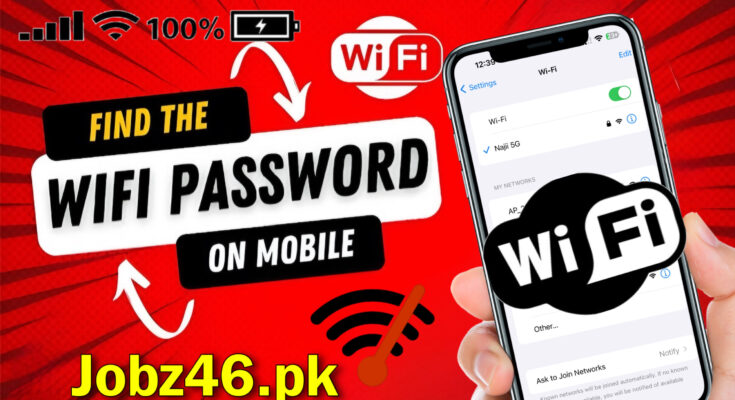How to Connect to Wi-Fi Without a Password: 3 Simple Methods. Having connection to Wi-Fi is essential for staying online in the modern digital world. Although most Wi-Fi networks require a password to login, there are some situations in which you may need to join without it. Here are three ways to connect to Wi-Fi without a password, whether it’s because you forgot your credentials or you’re using a shared network.
Method 1: WPS (Wi-Fi Protected Setup) Utilization
Without requiring the manual entry of a password, Wi-Fi Protected Setup (WPS) facilitates connecting to secure wireless networks. These are the actions to use WPS:
- Examine Router Compatibility: See if the router is compatible with WPS, which is sometimes indicated by a “WPS” button on the gadget.
- Activate WPS on Your Device: Navigate to the Wi-Fi settings on your PC or smartphone. Search for the WPS connection option.
- WPS Button Press: After choosing the WPS option on your device, press the WPS button on the router.
- Automatic Connection: It should be possible for your device to join to the Wi-Fi network without a password.
Pros:
- Simple and quick to use.
- No need to remember or enter long passwords.
Cons:
- Requires physical access to the router.
- Not available on all routers or devices.
Method 2: QR Code Scanning
Scanning a QR code is another efficient way to connect to a Wi-Fi network without a password. Here’s how to do it:
- Generate a QR Code: To create a QR code for the Wi-Fi network, use an internet tool. You can construct these codes with the use of websites such as qrstuff.com and qr-code-generator.com.
- Show the QR Code: You can print or view the QR code on a screen. This QR code contains the network name (SSID) and password.
- Scan the QR Code: Scan the QR code with your smartphone’s camera or QR code scanner app.
- Connect Automatically: Confirm the connection prompt to join the Wi-Fi network.
Pros:
- Easy to share with multiple users.
- No need to manually type in the password.
Cons:
- Requires a QR code generator and scanner.
- Not all devices support QR code scanning for Wi-Fi connections.
Method 3: Sharing a network using a mobile hotspot
Another useful method to connect to Wi-Fi without knowing the password is to use a mobile hotspot. Here’s how to do it:
- Mobile Hotspot Enablement:Turn on the mobile hotspot capability on the device that is linked to Wi-Fi. Usually, you may find this under the “Connections” or “Network & Internet” menus.
- Configure the Hotspot: For the mobile hotspot, choose a password and a name (SSID).
- Connect Other Devices: On the devices you wish to connect to, look for the mobile hotspot network.
- Internet Sharing:When linked, these gadgets will utilize the internet connection of the mobile hotspot-sharing device.
Pros:
- Ideal for sharing internet with multiple devices.
- Useful when you don’t know the original Wi-Fi password.
Cons:
- Can quickly drain the battery of the hotspot device.
- May have data usage limits depending on your mobile plan.
Security and Thoughts
Although these techniques provide easy ways to connect to WiFi without a password, it’s vital to think about potential security risks. Unauthorized access to wireless networks poses a danger of misuse and other security issues. Make sure that any shared access is safe and that you have authorization before connecting to any network. How to Connect to Wi-Fi Without a Password: 3 Simple Methods.
- Use Secure Methods: When connecting to Wi-Fi networks, always adopt safe and approved methods.
- Limit WPS Usage: Because of its vulnerabilities, use WPS with caution and turn it off when not in use.
- Monitor Hotspot Usage: Monitor hotspot usage to prevent data overloads and guarantee the security of the connection.
Conclusion
There are various ways to connect to Wi-Fi without a password; each has benefits and drawbacks. These methods, which include WPS, QR code scanning, and mobile hotspots, provide ease and versatility. To guarantee a secure and efficient connection, always put security first and get the required authorizations while utilizing these techniques.

